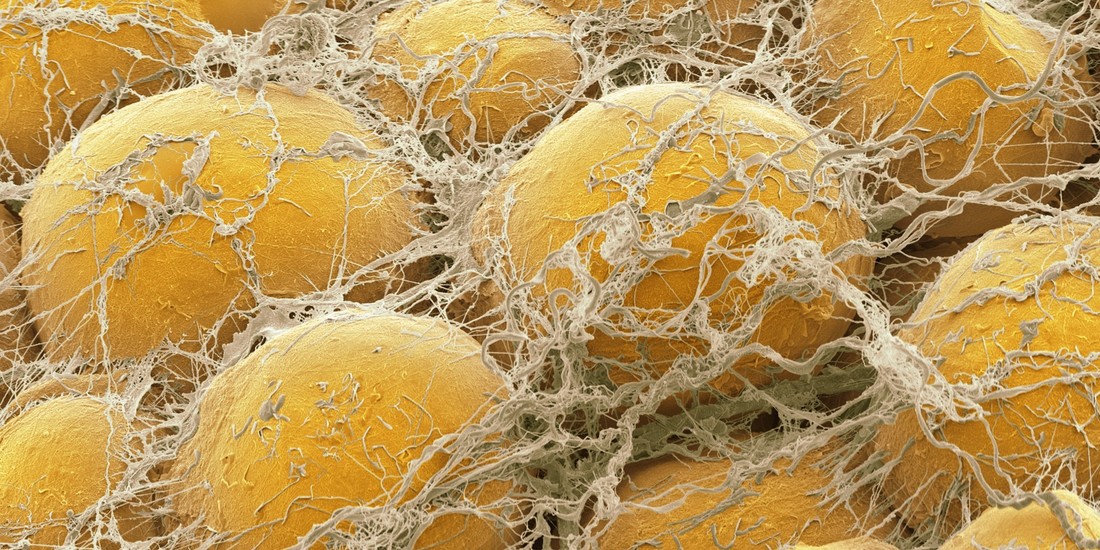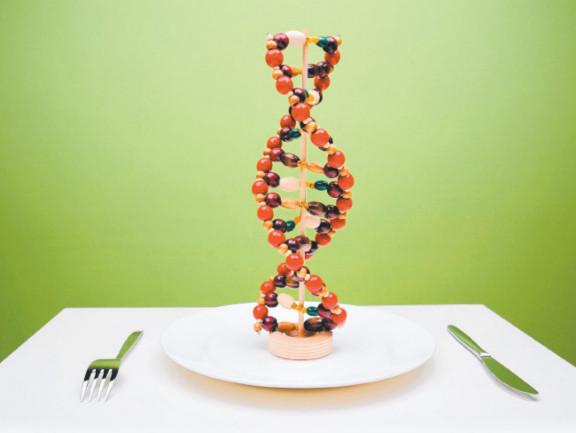|
Obesity is the result of an imbalance between energy consumed and energy dissipated and the focus of many weight-loss programs is to cut down on the calorie intake part and increase the calorie expenditure part. This might help you reach your target weight, but maintaining it in the long run becomes a challenge.
Sadly, non-invasive treatments such as diets or drugs are not embraced by many individuals while the more invasive bariatric surgery seems to be the favorite choice of obese people despite being expensive and causing side effects. A new study has tried to put an end to all these procedures with the discovery of a specific group of bile acid that has the ability to burn away the lipids in our fat tissues. These bile acids are present in the bile and are secreted into the intestines during the course of a meal. Bile helps to break down dietary fat into tiny globules that can further be broken down by the digestive enzymes so that it can be absorbed by the intestine. Research scientists have made a breakthrough discovery that the bile acid can convert fat-storing cells into fat-burning ones. Named as thermogenesis (heat production), this process helps to maintain body temperature in cold environments being loyal to its name. Fat cells are of three types:
How White Cells Become Beige Ones Activating the bile acid receptor TGR5 with mimetics (molecules that mimic the functionality of bile acid) triggers the remodeling of white cells into beige cells. Then, bile acid interacts with TGR5 receptor on white fat cells to change them from fat-storing to fat-burning cells. Apart from the change in color of the cells, these bile acids increase energy consumption in the newly formed beige cells. These mimetics also trigger lipolysis where the fat cells use fatty acids as their fuel source. This correlation between bile acids and fat loss can pave way for an excellent treatment approach in obese individuals. The advantage here is that low concentrations of TGR5 receptors are more than enough to promote the formation of beige cells from white ones. Weight loss does not happen overnight and to maintain the healthy weight loss, you need to work hard. Ask yourself if you need to lose weight or if you are interested in taking up a weight-loss program. If your answer is yes, don’t worry. You are not alone and there are millions of individuals in this world who have a similar weight loss goal just like yours. All these people are overweight/obese, and they try to lose weight through different weight-loss programs. Many of these programs are advertised in newspapers, magazines, radio, TV and internet. But, are they safe, reliable and effective?
Given here are tips to choose a program that helps you lose weight safely and maintain your lost weight. Choosing the Ideal Program to Lose Weight To stay on a healthy weight, you need to fix your attention on overall body health and lifestyle changes. Any weight-loss program should promote healthy behaviors in an individual that helps him/her lose weight safely, stay on the healthy weight and that you can stick to every day. Look for a program that includes:
Overweight/obese people are initially recommended to enroll themselves in a program that helps them lose 5-10% of body weight within 6 months. For example, if you weigh 100 kilograms, losing around 5-10 kilograms in 6 months should be your target. While losing weight is not easy, practicing healthy habits that you don’t give up within a few weeks or months can help you maintain the lost weight. Can I Go for an Offline Weight-loss Program? Just like online shopping and online health consultations by physicians nowadays, weight-loss programs are offered online too. If you plan to enroll yourself for an online program, ensure that the program offers the following facilities:
We all envy that one friend who weighs less even when he/she consumes calorie-dense foods all the time and do not perform any physical activity. It’s in the gene after all!
A new study has found that apart from diet and physical activity, genes are the ones that determine how easily you gain or lose weight. While there have been various studies that link genetic variations that are merely ‘flags’ on the genome with obesity and BMI, specific genes linked to obesity have not been found until now. The study collected genetic data from over 7,00,000 individuals and 125 studies. Fourteen genetic variations in 13 genes were identified and this included a risky copy variation which can make the individual weigh 7 kilograms more in comparison to individuals who do not carry the variation. Known as the MC4R, this gene is present in 1 in 5,000 individuals and lacks the protein needed to inform the brain to stop eating once hunger is satisfied. Another gene called GIPR is affected by two variants which make a person weigh 2 kilograms lesser. Almost 1 in 400 persons are carriers of either variant. Eight of the 13 genes detected affected obesity values and further studies might help us identify their working procedure that have implications on body weight. The prominent discovery of the study is genes that are important for the neuronal control of body weight. By neuronal content we mean reaction of people to food intake, hunger, satiety, etc. People with these genes also find it difficult to stop eating or eat less compared to others. The study considered the genes as one single group rather than dealing with it individually. By doing this, we can confirm the ones that are crucial for controlling body weight and have a strong genetic support. By combining the knowledge of both, genes and the biological pathway through which they work, researchers feel that they are closer to find out the underlying reason for the easy weight gain of some people over others. This is critical for effective treatment options too. By this, we do not mean that weight loss/weight gain is a natural process that is inevitable. Various other factors such as eating habits, lifestyle and physical activity determine weight loss/gain in an individual. Although genes may trigger obesity risks, staying on a healthy weight is in the hands of each person. If he/she diligently follows a healthy weight loss/gain program adhering to all the conditions implied, he/she is sure to achieve his/her goal. |
AuthorDietitian & Nutritionist Dr. Nafeesa Imteyaz. Archives
September 2018
Categories |
- Home
- Written Testimonials
- Consult
- Clinics
- Blogs
-
Diet & Nutrition
- Diabetes Reversal
- IVF IUI not needed for PCOS PCOD Infertility
-
Medical Nutrition
>
-
Disease & Conditions
>
- Infertility | PCOS
- Diabetes Mellitus
- Cholesterol
- Hypothyroid
- Kidney Problems
- Hypertension
- Cardiovascular Diseases
- Liver Diseases
- Gastro intestinal disorder
- Cancer
- Metabolic Disorders
- Orthopedic Disorders
- Eating Disorders
- Dietary Recall
- Weight Record Filled By Clients
- Online Payment Transaction Details
- Online Clients Weight Check Form
- Our Program Package Service Charges
- Weight Record 2017 Clients
- Measurements sent by Clients
- Terms & Conditions Of Payment
- Thanks. Your Form is Submitted
- Video Testimonials
- Lifestyle & Wellness
- Lifestyle & Wellness Blog
- Allergy & Intolerance
- Weight Loss / Gain
- Weight Loss / Slimming Blog
-
Disease & Conditions
>
- Life Cycle Nutrition >
- Sports Nutrition >
- Integrity in Nutrition
- Knowledge Centre
© COPYRIGHT 2022. ALL RIGHTS RESERVED. FRST HEALTHCARE PVT LTD.
Dr. Nafeesa Imteyaz of First Eat Right clinic, is the Best Dietitian Nutritionist in Bangalore. Best Dietitian Nutritionist in Pune. Best Dietitian Nutritionist in Hyderabad. Best Dietitian Nutritionist in Chennai. Best Dietitian Nutritionist in Mumbai. Best Dietitian Nutritionist in Delhi. Best Dietitian Nutritionist in Kolkata.




 RSS Feed
RSS Feed